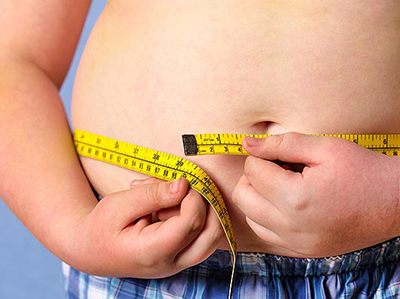
Source: kannadigaworld.com
Did you know that breastfeeding helps to reduce childhood and adult obesity in breastfed children? Obesity is one of the most serious health problems facing both children and adults today. Childhood obesity often leads to adult obesity, which causes many health problems including heart disease, diabetes, and even early death. Researchers are learning more about how breastfeeding can help prevent obesity and there is a growing body of research on this subject.
Breast milk provides your baby with food that is easy to digest and very nutritious, and the beauty of breastfeeding is that YOUR child helps decide how much to eat and when to eat it. Both the breast milk itself and the way your baby feeds help him or her to develop healthy eating patterns. Breastfed infants learn to control the amount of human milk and calories they consume better than bottle-fed infants, who are often forced to continue feeding and finish a bottle after they are satisfied. Because breastfeeding provides food for your baby that is easy to digest and nutritious, you do not need to feed your baby solid foods until he or she is 6 months old. “Early introduction of solids,” or feeding your child solid food such as cereal or jarred baby food, is linked to risks for food allergies and higher risks of obesity. This is another good reason to give your baby the healthy nutrition that breast milk provides.
Here are some research findings:
- Breastfed babies have significantly lower rates of fat compared to formula-fed babies at one year of age, and breastfeeding offers protection from future obesity (Dewey et al. 1993; Kramer et al. 1985).
- At five to six years of age, children who were never breastfed had obesity rates of 4.5 percent compared to obesity rates of 0.8 percent for children who were breastfed for more than 12 months (von Kries et al. 1999).
- When children reached nine to 12 years of age, those who were breastfed for the first six months of their lives had overweight rates that were 22 percent lower than infants who were not breastfed. Children and early adolescents who were breastfed for longer than six months had even lower rates of overweight and obesity (Gillman et al. 2001).
- At 18 years old, young adults who were exclusively breastfed for three months or longer were significantly leaner and had less body fat (Tulldahl et al. 1999).
- Energy-dense infant formulas may stimulate the endocrine system to secrete more insulin and growth factor than human milk does, which leads to increased rates of body fat in formula-fed babies (Hediger et al. 2001).
You should not worry about manipulating the breastmilk content as the average calorie content of human milk is 22 kcal/oz. Caloric content varies widely throughout each feeding and the day, however, due to changing fat content. The amount of fat in human milk changes dramatically during each feeding and throughout the day, since fat content depends on the degree of emptiness of the breast (empty breast = high fat, full breast = low fat). The average fat content of human milk is 1.2 grams/oz.
Research tells us that mom’s diet does NOT affect the average amount of fat or calories in her milk. However, mom can change the types of fat in her milk by altering the types of fats that she eats (Lawrence 1999, p. 106-113, 300-305; Hamosh 1996, Hamosh 1991, p. 123-124). To read up more on this please go to: http://kellymom.com/nutrition/milk/change-milkfat/
Essentially, breast milk is perfect just the way it is. The perfect food for babies!
Rita Rahayu is a mother of 4 breastfed children. She is an International Board Certified Lactation Consultant-IBCLC, a member of International Lactation Consultation Association (ILCA), Australian Breastfeeding Association (ABA) and Persatuan Penasihat & Pakar Laktasi Malaysia (PPPLM). She actively writes for breastfeeding websites and parenting magazines and is fully committed to ensuring a successful and conducive breastfeeding experience for all Malaysian mothers.
This is the personal opinion of the writer and does not necessarily represent the views of The Malaysian Medical Gazette.
[This article belongs to The Malaysian Medical Gazette. Any republication (online or offline) without written permission from The Malaysian Medical Gazette is prohibited.]
